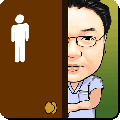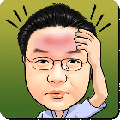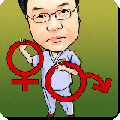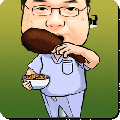Can acupuncture treat Irritable Bowel Syndrome (IBS)?
Yes, it can. An increasing number of studies have been conducted on treating IBS with Chinese medicine, with promising results. These studies have documented that Chinese medicine can effectively treat IBS in a safe and drug-free way.
What is IBS?
Irritable bowel syndrome (IBS) is also known as spastic colon or mucus colitis. It is labeled a syndrome because is involves a group of symptoms that varies for each individual who is affected. It is a motility disorder (involving abnormal movement) of the small and large intestines. Symptoms of IBS include abdominal cramping and pain, and constipation and/or diarrhea (often in alternating episodes). IBS may also be accompanied by other gastrointestinal problems, such as flatulence, bloating, and nausea. Symptoms are almost always aggravated by stress. Episodes may also be aggravated by eating, and are frequently relieved after a bowel movement. An estimated 10 percent to 20 percent of all Americans are affected by symptoms of IBS, with three times as many women as men being affected. The cause of IBS is not yet known. However, we do know what does not cause IBS. IBS is not a structural problem, meaning there is no anatomical change, nor is it biochemical or infectious in nature. Researchers are exploring the theory that there are direct links between the brain and the gastrointestinal system, which would explain why flare-ups of IBS are sometimes triggered by emotional upsets or stress.
IBS according to Chinese Medicine
While other patterns may be present, IBS is almost always considered a disharmony between the liver and the spleen in traditional Chinese medicine. The liver is responsible for the smooth flow of substances throughout the body. This flow can be upset by emotions or stress, causing stagnation of Qi (energy) or blood. Traditional Chinese medicine views the spleen as being associated with the function of digestion and transforming food into energy (Qi and blood). The spleen can be weakened by a number of factors, including overeating unhealthy foods, overwork, too much worry, fatigue, and lack of exercise. When the spleen is weak and the liver is not moving smoothly, the liver overacts on the spleen and can manifest as symptoms of IBS. A liver/spleen disharmony is similar to the short-term loss of appetite or a bout of diarrhea that occurs during an occasional emotional upset. With IBS, however, the phenomenon occurs in slow motion; the emotional trauma or stress takes place over a long period of time, and the digestive symptoms of IBS can last for years. Practitioners of acupuncture or traditional Chinese medicine may use a variety of modalities to correct a liver/spleen disharmony. They may use acupuncture, Chinese herbs, dietary therapy and lifestyle changes to facilitate healing of this condition. The herbal formula Tong Xie Yao Fang addresses the disharmony between the liver and spleen, and might be a starting point with modifications for each individual case. Some lifestyle changes that may help alleviate symptoms include:
- Getting adequate exercise, which helps relieve stress, moves energy, regulates the bowels, and helps alleviate constipation.
- Practicing stress relief measures, such as meditation, yoga, breathing exercises, or quiet time, is key to keeping IBS symptoms under control.
Dietary changes should be individualized, and should focus on eliminating foods that trigger symptoms and adding adequate fiber to the diet. Soluble fiber is gentler on the GI tract, and includes foods such as oatmeal, berries, and legumes like lentils and garbanzo beans. Crude fiber, such as bran and raw vegetables and their skins may be too irritating, and should be monitored as a trigger for symptoms. Other foods that are common triggers include greasy or fatty foods, diary products, alcohol, caffeine, chocolate and drinks that are carbonated. Probiotics may be helpful for some sufferers of IBS. Probiotics are supplements that replace the good bacteria in the gut necessary for digestion. A common form is Lactobacillis acidophilus, which can be found in most natural foods stores. Adequate sleep is important for sufferers of IBS, because stress, which is the most common trigger for IBS, is aggravated by lack of sleep. In addition, adequate sleep helps the body heal and rejuvenate.





